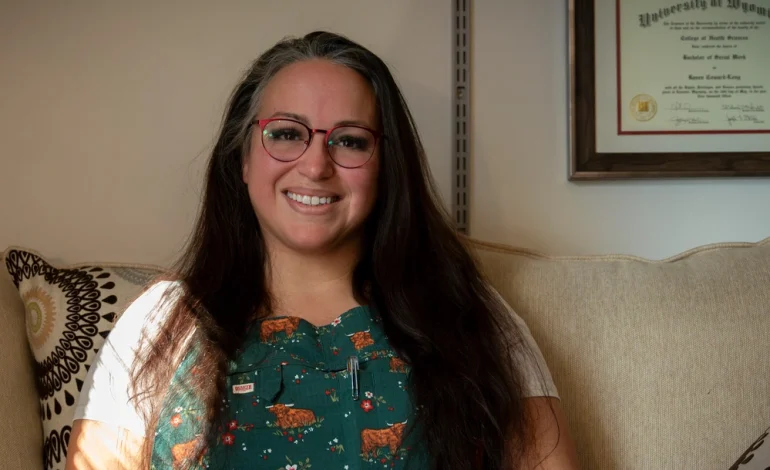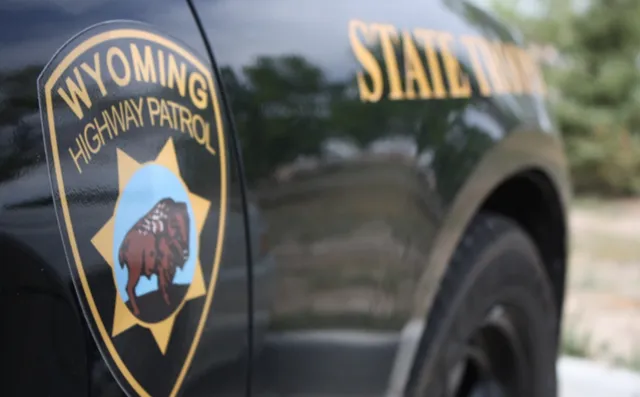‘Mental Readiness Is Mission Readiness’: Meet the Guard’s Go-To Mental Health Pro, Raven Coward

The original story by Senior Airman Samuel Toman for DVIDS.
When Airmen in the 153rd Airlift Wing need someone to talk to, odds are they end up in Raven Coward’s office — or on a telehealth call with her — sooner or later.
Coward has served as the director of psychological health for the Wyoming Air National Guard since August 2023, and she’s become a key piece of the wing’s support system. Her job: keep Airmen mentally ready so they can stay mission ready.
That means a little bit of everything, every day.
She offers one-on-one counseling, sets up telehealth appointments for members who live hours from Cheyenne, helps with crisis response, and connects Airmen and their families to community-based resources all over the state. If someone needs care and can’t easily get to a base, she works to make sure distance isn’t the reason they go without help.
On top of all that, Coward is deeply involved in the wing’s family readiness efforts, morale events and member support programs. She said her focus is simple: make sure people get help before problems start to pile up.
“My priority is making sure Airmen have access to timely care and guidance,” she said.
That includes consulting with commanders about mental-health concerns in their units, connecting members with local providers, and helping those in crisis navigate the system instead of trying to do it alone.
Coward said she approaches mental health as a core part of the mission, not an add-on.
“Mental readiness directly affects mission readiness,” she said. “If someone’s functioning is impaired, even by something small, it can impact the entire process. Every job is essential. If one part of the machine stops, the mission doesn’t move the way it needs to.”
Coward also leads the wing’s suicide prevention program, and she’s worked hard to make it something more than a yearly box-checking exercise.
Instead of a dry briefing, she’s turned the training into something interactive, with real discussion and participation. She often uses images, examples and scenarios drawn directly from the 153rd Airlift Wing, so the content feels personal, not generic.
The goal, she said, is to make tough topics feel a little more approachable and give people practical tools — how to spot warning signs, how to ask direct questions, and how to get someone connected to help.
She measures success in quiet moments that happen long after the PowerPoint slides are closed.
“The most rewarding part is when someone comes back later and says a conversation, a resource or a training really stuck with them,” she said. “That’s the hope, that we make a positive impact on people’s lives. When someone tells you it mattered, that gets me in my heart.”
Coward’s commitment to the job isn’t abstract. It’s personal.
She comes from a family with a strong military history, and she’s seen firsthand how suicide can ripple through an entire family and community.
“I’ve seen suicide impact entire families,” she said. “Talking about it openly and improving support can help people return to a place where they can function and enjoy life.”
That perspective shapes how she shows up at work — calm, direct, and unafraid of hard conversations. She wants Airmen to know that reaching out isn’t weakness; it’s how you stay in the fight.
Outside the Guard, Coward keeps busy in very non-clinical ways. She’s active in community theater, volunteers in the community, knits, and spends as much time as she can with her kids.
Around the wing, she’s also gained a bit of a reputation for her unofficial “uniform”: overalls. Lots of them.
She owns about 25 pairs, and wears them just about every day. It’s become a running joke — and an easy icebreaker for Airmen who might otherwise feel nervous walking into a mental health office.
Coward’s message to Airmen, families and veterans is consistent: you don’t have to navigate this alone, and you don’t have to wait until things are falling apart to ask for help.
If you or someone you know is in crisis or thinking about suicide, you can reach the 24-Hour Military Crisis Line at:
- 1-800-273-8255
- TEXT 838255
Whether it’s in her office, via telehealth, or through a late-night crisis line, Coward’s mission is the same — making sure Wyoming’s Airmen have the support they need to take care of themselves, their families and the mission.









The latest news in your social feeds
Subscribe to our social media platforms to stay tuned